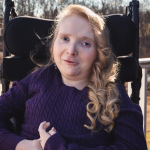TSHA-102 Gene Therapy Trial Seeks Women With Rett in Canada
This 1st trial of a Rett gene therapy may lead to future studies in girls and boys

Taysha Gene Therapies is recruiting women with Rett syndrome for the REVEAL Phase 1/2 study that will test its investigational gene therapy TSHA-102.
This is the first trial of a gene therapy for Rett syndrome, according to the International Rett Syndrome Foundation.
The open-label trial (NCT05606614) will be evaluating the safety, tolerability, and preliminary efficacy of a low dose (5E14 vector genomes per kilogram, vg/kg) and a high dose (1E15 vg/kg) of TSHA-102 in up to 18 women, 18 or older, with Rett syndrome caused by a MECP2 gene mutation. Trial details were provided by Suyash Prasad, MD, chief medical officer and head of research and development at Taysha.
Recruitment is underway at a clinical site in Canada following the trial’s clearance earlier this year by Health Canada. Another site is expected to open in Canada, and Taysha is working to add locations in the U.S. and the U.K. Patients and caregivers may need to relocate for up to five months as they will be required to be close to a study location.
REVEAL Phase 1/2 trial expected to last six years for most participants
TSHA-102 is injected directly into the spinal canal (intrathecal administration). After a three-day hospital stay to receive the gene therapy, patients will need to visit the clinical site weekly, then monthly, and ultimately bi-annually.
“A number of tests will be done to understand how your symptoms of Rett syndrome are changing or not,” Prasad said.
Participants will be randomly assigned to receive TSHA-102 immediately or after a pre-determined period of time after screening in a delayed treatment group. All patients in both groups will be monitored at the same time. This design enables using patient data as a control without needing a placebo group, according to Prasad.
The delayed-treatment participants will receive the therapy at the dose with the best risk/benefit profile as determined in those first dosed.
The overall study duration will be approximately six years for most participants. The trial’s completion date is estimated to be January 2032.
Once the first clinical data become available from the REVEAL study, Taysha plans to discuss a clinical trial for girls with Rett with regulatory authorities.
The company is also drafting a protocol for a potential future trial of TSHA-102 in boys with Rett.
“Our intent is to run that study too,” Prasad said, adding that the trial will only start after the one with girls, although no definite date is yet available.
Rett mouse study shows one-time delivery of gene therapy enhanced survival
Nearly all cases of Rett syndrome are caused by mutations in the MECP2 gene that lead to insufficient or defective MECP2 protein. This protein is important for brain development and function.
TSHA-102 uses a harmless adeno-associated virus to deliver a shorter but functional version of MECP2. The gene is only “switched on” in nerve cells. The gene therapy is also designed with a self-regulatory suppressor called a miRNA-responsive auto-regulatory element (miRARE), a feature that prevents the excess production of the MECP2 protein.
If delivering MECP2 with TSHA-102 leads to improved clinical features in Rett patients, “then that will be quite a significant achievement,” Prasad said.
Data from a Rett mouse model showed that one-time delivery of the gene therapy enhanced survival. Additional benefits included improved body weight, motor function, and lung function.
In a six-month toxicology study in nonhuman primates, TSHA-102 was distributed in several areas of the brain and spinal cord. No toxic high levels of the MECP2 protein were seen, nor any changes in behavior or adverse tissue findings.
Taysha’s gene therapy programs for Rett syndrome and giant axonal neuropathy, another progressive neurodegenerative disorder, are being developed in partnership with Astellas Pharma.








